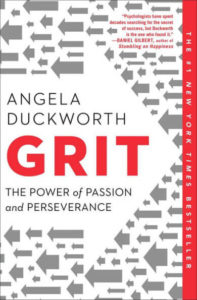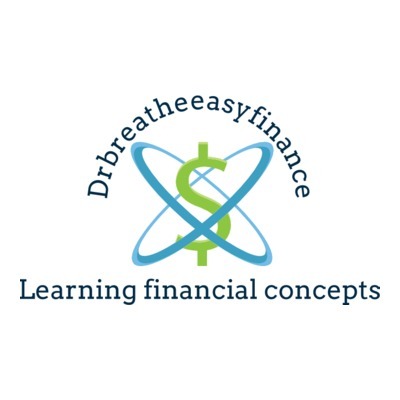Today is a good day for financial literacy as I have a friend who built an excellent course – family money school to help you cut to the chase without wasting time and energy while passing awesome financial tidbits to your little ones. After all, we want our kids to do better than us in all area of life. Matt will be teaching us the 5 pillars of money every parent needs to teach their child in this post. An introduction to the course in easily digestible tips.
If you want to skip all these and get started, then click on the image below to register your kids.
In addition to being the husband of an amazing wife and dad to two awesome munchkins, Matt Matheson is a teacher and school administrator with almost 15 years of experience and a passion for teaching kids. Since he had his own kids, he’s been working hard to pass on his money values to them. It’s his love of teaching and desire to help parents raise money rockstars that lead him to develop Family Money School, a course designed to make it easy for busy, overwhelmed and confused parents to teach their kids about money.
As parents wanting to raise money-savvy kids, it can feel like there are literally hundreds of different things you need to teach your kids in order for them to win with money. But with busy lives and hectic schedules, where’s a good-intentioned parent even supposed to start?
Sure, you could look online at money and parenting blogs and government-sponsored sites about financial literacy.
You could pour over endless pages of research on how to best teach kids about money. You could read countless personal finance books and listen to a few dozen podcasts on the topic.
And then, after the hundreds of hours that would take you, you could distill all the information down into the must-haves when it comes to teaching kids about money.
But who has time for all that? Let me help you out and boil everything down to exactly what you need to pass on to your kiddo to help them rock their money.
But before I do, you need to know that I’m a learner. The insights I’m going to share have developed over my years of learning about money and my years of experience in teaching kids (I’m a freelance personal finance writer and blogger who has taught for almost 15 years and is also an elementary school administrator. I also have a Masters of Education).
The information comes from a variety of different places: books, blogs, research, podcasts, etc. and I’ve put into practice what I’ve learned with my own kids (I’ve got a daughter who’s 6 and a son who’s 3).
What I’ve done is combine that financial knowledge with my educational expertise and experience, to come up with the must have’s when it comes to teaching your kid about money.
In order to become a Money Master, your kids need to learn 5 basic concepts, concepts which I refer to as the 5 Pillars of Money. Here they are in no particular order:

Table of Contents
The 5 Pillars of Money Every Parent Needs To Teach Their Child
1. How to work: Learn to Earn → Kids are smart.
They know there’s no such thing as a money tree (although did you know that there actually is? Unfortunately, it doesn’t sprout hundred dollar bills, just leaves).
But many kids legitimately think that money does just mysteriously appear from ATM’s. Or they think that there’s a limitless supply on those seemingly magical plastic devices called credit cards (it’s black magic as far as I’m concerned).
In all seriousness, kids need to understand where the money comes from.
And where might that be? (I know some of you are waiting with bated breath…)
WORK!!
Not only do kids need to understand the connection between working and earning, but they also need to learn to work, period.
Research from Dr. Angela Duckworth, a MacArthur Genius award recipient, found that kids who display grit (another term for stick-to-it-ness) not only do better in school but go on to earn higher incomes in the future. And the best part? You can actually TEACH grit.
If you want a copy of her book, click the image below to get your own copy.
Translation, if you can teach your kid to be gritty, they’ll earn more. One of the best ways to teach grit? WORK.
2. Savvy Spending – Living below their means
We live in a hyper-consumer culture where both adults and kids are bombarded every day with the message that who they are and what they have aren’t enough to bring them true joy and contentment.
In order to be truly fulfilled, we NEED more. This is a dangerous lie and one that everyone, including me and you, has bought into at different times in our lives.
But you don’t want that for your kids. That’s why you need to make it crystal clear for your child what the difference is between needs and wants.
By showing them that they need to spend on their needs first, they’ll not only be in control of their finances, they’ll also be able to fully enjoy buying those wants without worrying about the credit card hangover that haunts most people.
We have an awesome post on how to live below your means in 7 easy steps.
Are you ready to register your little pumpkins yet? Link in the picture below
3. Saving: How to Get What You Really Want
When it comes to saving money, 40% of American adults don’t have the cash to cover a $400 emergency. In addition, 30% of households have less than $1000 tucked away.
But this isn’t how it’s going to be for your child. Your kid’s going to fly in the face of the cultural famine of savings. To do this, you need to emphasize using automation to overcome our terrible impulse control.
Both personal experience and science tell us that human beings generally lack the willpower needed to overcome temptation. To help your kiddo get around this, you need to encourage them to automate as many financial decisions as they can.
You know they need to save money each month, to pay themselves first as the financial experts say, but this can be incredibly difficult for many people. Automation is your kiddo’s ticket to making this happen.
While on the topic of saving, check out our super duper helpful post on 101 ways to save money.
4. The Gift of Giving: It Always Comes First
Even though it’s the 4th Pillar of Money, giving is the most important. Because this is the exercise that demonstrates whether you’re the master of your money, or whether it’s the master of you.
Tons of people are stressed about their finances. In fact, stress about money is at an all-time high, with a recent survey showing that 36% of adults have lost sleep because of worries over money.
The silver bullet for your kid to avoid the stress and worry about money that many people feel is to master his money. How can you teach him to do that? One word. Bacon.
Yes, heard me right, Bacon, because it was Sir Francis Bacon, a 16th Century English writer, scientist, and philosopher and evidently, personal finance expert, who said that, “Money is like manure. It’s only good if you spread it around.”
Money is like manure. It’s only good if you spread it around. Share on X
Now Bacon wasn’t talking as some high-minded aristocrat looking down on people from his ivory tower. Having fallen into deep debt, lost his job, and with his marriage on the rocks due to his financial troubles, it wasn’t like he was a medieval version of Bill Gates or Warren Buffett.
And yet, that was his advice.
As I said, Bacon was a philosopher. So I’m guessing, unlike you or I, he spent a lot of time thinking. And since his finances were such a disaster, I’m sure the topic of money was often at the forefront of his mind.
So why tell us that the solution to our money problems was to give it away?
You Can’t Serve Two Masters
Bacon understood that there is no middle ground when it comes to money. It’s a great servant, but a terrible master (another famous money quote from him).
Bacon understood that there is no middle ground when it comes to money. It’s a great servant, but a terrible master (another famous money quote from him) Share on X
Either you own it, or it owns you.
You’re either it’s master or its slave. And the best way to ensure that you’re not its slave is to spread it around like manure, to give it away.
As parents, this is one of the most critical money lessons you can pass on to your kids because it’s this consistent generosity which is a hallmark of people who are TRUE money rockstars.
5. Money Isn’t Everything (It’s important, but not everything)
Ok, this is probably where the personal finance expert should lay out a very compelling money problem and use a brush to paint it like it’s the MOST important issue facing his readers.
I mean, it would be kind of stupid for a car salesperson to try to convince a potential buyer that they should stick with their boring, old, reliable sedan and forgo the flashy new sports car.
And yet here I am, telling you money isn’t the be all end all. Because it’s not.
It’s not the MOST important thing in life. Not even close. And it definitely shouldn’t be the sun around which your kids’ world revolves.
In order to truly win with money and live life to the fullest, you have to put it in its proper place in the pecking order of life.
That means it’s after your faith, your family, and your physical and mental health.
As soon as it creeps into those upper echelons of priority, your child is going to have big problems.
They’ll find themselves making decisions based on what’s best for them financially rather than taking into account the health of their spirit, relationships, or physical and mental health. So be sure to model to your child that while important, money isn’t everything.
Bringing It All Together
While raising a money rockstar can seem daunting at times, it’s not only possible, it’s PROBABLE when you know what to focus on (The 5 Pillars of Money) and you have someone to lend you a helping hand along the way.
As parents, what you do day in and day out is nothing short of heroic! But even the greatest of heroes needed a sidekick – Luke Skywalker needed Yoda. Captain Kirk relied on Spock. And Nemo wouldn’t have been found without Dory.
When it comes to raising a money genius, you’re Batman. Let me be your Robin.
Join the Family Money School. Please share the post and comment.
Don’t forget to check out our blog sponsors for your contact negotiation and disability insurance needs.
I am a pulmonary and critical care doctor by day and personal finance blogger/debt slaying ninja by night.
After paying off close to $300,000 in student loan debt in less than 6 months into my real job, I started on a mission to help others achieve the same. There is no magic to this than to strap up and get it done. Some of the ways we achieved this include side hustle, budgeting, great negotiation skills, and geographical arbitrage.
When I was growing up, common knowledge in Nigeria is that there is one thing you cannot trust anyone else with, and you guessed it – your money.
Being frugal came easily to me based on my background. However, the concept of building wealth did not solidify in my mind until when I finished medical school. I wish I knew what I know now when I was 14. Still, I don’t know enough and I am constantly learning to improve my knowledge.
My goal is to reduce financial illiteracy among young professionals. I am catering to the beginners – babies and toddlers in financial literacy.












segc m'sila says
Thank you very nice article website
Mariam says
Great post! It’s so important for parents to teach their young ones about money because a lot of people, myself included, have gotten our first jobs and blown through our paychecks more than we would like to admit!
Adebayo says
You are definitely not alone, I am sure you have found your footing and now savvy. Our kids are the future, we should not just sit there and watch them repeat the same mistake we did. Thanks for reading and taking the time to comment.